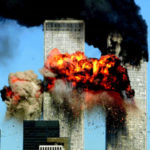By Dr. Rachel Ehrenfeld and Alyssa A. Lappen
Washington Times | June 29, 2006
Russia launched another strike against democracy on June 15, when 14 Duma members, representatives of Russia’s five Duma factions, submitted amendments to ban any public political criticism by individuals and/or organizations, including demonstrations against the government.
This comes on the heels of an announcement of further restrictions on foreign oil companies by Russian Natural Resources Minister Yuri Trutnev at the St. Petersburg Economic Forum on June 13. The new restrictions would consolidate Russia’s control of its energy and other resources.
Vladimir Putin’s government, fortified by massive oil revenues, seems determined to reverse what little democracy Russia achieved since 1991. “The transition has been from a one-party state to a one-pipeline state,” noted Ivan Krastev, chairman of the Centre for Liberal Strategies, in Sofia, Bulgaria.
It is about time for President Bush to take a look at Putin’s soul to understand the Russian’s version of democracy.
“Democracy should be adequate to the current status of the development of Russia, to our history and traditions,” claims Mr. Putin. Yet, Russia’s increasingly restrictive domestic policies, media control, mounting corruption and poor implementation of the rule of law challenge its democratic development and limit the progress of Russia’s free market.
“While Russia’s Constitution enshrines the basic principles of democracy, the current policies of the Kremlin are undermining them in practice,” concludes “Nations in Transit 2006,” a June 13, 2006, Freedom House report. In fact, Russia’s growing energy wealth is used not to strengthen democratic institutions but to fuel corruption.
Russian businesses paid $316 billion in bribes since 2001 — an increase of 70 percent, according to a report published by the Indem Foundation in 2005. And corruption is not limited to the business realm; Russian citizens are forced to pay bribes to receive basic services that the government is supposed to provide for free. Want your drivers license in the near future? Your passport ready before your flight takes off? Your marriage license? Pay up.
Indeed, Mr. Putin recognizes corruption as the major obstacle to economic growth. In his State of the Nation address on May 11, 2006, he noted, ” one of the most significant traits of our internal political life is the low level of trust of citizens towards specific institutions of government and big business.” On June 13, he elaborated by saying, “We have never ceased this fight against corruption and intend to carry it on permanently and to make it more strict, effective and consistent.”
But according to Kirill V. Kabanov, director of the National Anti-Corruption Committee, “In Russia it is always the case some people are found at the lower or middle level, while no one at the top is.” He sees Mr. Putin’s recent comments and the dismissal of some government officials for alleged corruption as “just a P.R. campaign and nothing more.”
Mr. Putin’s version of democracy seems to extend to Russian corporate understanding of free markets. Take the international conflict for control of Russia’s second largest mobile phone operator, VimpelCom, between Russia’s $20 billion-plus Alfa Group and Norway’s largest phone company, Telenor East Invest AS. Moscow-based VimpelCom trades on the New York Stock Exchange and apparently didn’t file official 1996, 1997, 1998, 1999 or 2000 annuals with the Securities and Exchange Commission, thus, keeping its shareholders in the dark. Inquiries with the Securities and Exchange Commission yielded no results.
To approve major decisions, VimpelCom’s charter requires a majority of eight of its nine board members, a common Russian corporate safeguard against hostile takeovers. But since 2004, Alfa has been attempting to annul VimpelCom’s supermajority rule or otherwise gain control. In June 2005 the Russian Supreme Court ruled against Alfa. Yet on May 26, 2006, Alfa Telecom Ltd solicited proxies for VimpelCom’s June 23 annual shareholder meeting, alleging that Telenor is harming shareholder values. However, Telenor refuted these allegations. VimpelCom’s apparent lack of transparency seems to benefit Alfa Group’s global ambitions, which neatly coincide with Mr. Putin’s agenda.
To counter the mounting criticism of Russia’s growing repression of individual and corporate rights, control of the media, limitations on nongovernmental organizations and rising corruption and to ward off U.S. objections about Russia’s ascension to the World Trade Organization, Russia passed new laws corresponding with WTO regulations.
However, allowing Russia’s membership in the WTO at the time when corruption exceeds that of the Soviet era, will allow Russian companies — many state-controlled (directly or indirectly) — to use their vast fortunes to corrupt international businesses and enhance their and Russia’s fortunes while further impeding democracy. As former CIA Director R. James Woolsey put it, “Putin has taken things back, maybe not all the way to Ivan the Terrible, but to, say, Nicholas II on a bad day.”
All Rights Reserved.
Printing is allowed for personal use only | Commercial usage (For Profit) is a copyright violation and written permission must be granted first.






